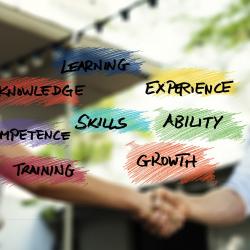How to Prepare for Networking Events to Maximize Results
Networking events can be pivotal for personal and professional growth. Whether you're looking to expand your professional circle, seek new opportunities, or learn from industry leaders, a well-prepared approach can significantly enhance your experience and outcomes. Here’s a comprehensive guide to help you prepare for networking events and maximize your results.
Pre-Event Preparation
-
Define Your Goals:
Before attending any networking event, outline your specific objectives. Are you looking to connect with potential clients, meet industry influencers, or learn about new trends? Clear goals will guide your interactions and help you stay focused. -
Research Attendees and Speakers:
If you have access to an attendee list or speaker lineup, take the time to research individuals you’d like to connect with. Understanding their professional background and interests can provide conversation starters and demonstrate your genuine interest. -
Prepare Your Elevator Pitch:
Develop a concise and compelling elevator pitch that highlights who you are, what you do, and what you’re seeking. Having this pitch ready will help you confidently introduce yourself and make a memorable first impression. -
Update Your Online Presence:
Ensure your LinkedIn profile and any other relevant online profiles are up-to-date and professional. A polished online presence reflects your commitment to your professional image and provides a point of reference after the event. -
Bring Essential Materials:
Bring a respectable number of business cards, a notebook or a digital device for notes, and any other relevant materials you might need. Make sure your business cards are easily accessible to facilitate smooth exchanges.
During the Event
-
Dress Appropriately:
Adhere to the event’s dress code to align with the expected level of professionalism. Dressing appropriately can help boost your confidence and reflect your respect for the occasion. -
Be Proactive and Approachable:
Take the initiative to introduce yourself to new people. Display open body language and be genuinely engaged in conversations. Show interest in others by asking insightful questions and listening actively. -
Utilize Conversation Starters:
Effective conversation starters can ease initial awkwardness. Mentioning a shared connection, commenting on the event itself, or bringing up industry trends can spark meaningful discussions. -
Attend Relevant Sessions:
If the event includes workshops, panels, or presentations, choose sessions that align with your interests or goals. These gatherings provide valuable learning opportunities and a chance to meet like-minded professionals. -
Network with a Giving Mindset:
Focus not only on what you can gain but also on offering value to others. Provide insights, make introductions, or suggest resources that might benefit your conversation partners.
Post-Event Follow-Up
-
Organize Your Contacts:
After the event, organize the business cards and contact information you’ve gathered. Make notes about how you met each person and any next steps you discussed to personalize your follow-ups. -
Follow Up Promptly:
Send personalized follow-up messages within 48 hours. Mention specific details from your conversation to show genuine interest and reinforce your connection. A LinkedIn connection request with a personalized note can be an excellent way to solidify this relationship. -
Stay Connected:
Plan to stay in touch with your new contacts by sharing relevant articles, congratulating them on achievements, or inviting them to future industry events. Building a lasting relationship requires ongoing engagement. -
Reflect on Your Experience:
Take time to evaluate what you gained from the event and how effectively you achieved your goals. Reflecting on your experiences will help you refine your networking strategies for future events. -
Maintain Momentum:
Don’t let your networking efforts end with the event. Continue to seek out opportunities to network and connect with industry professionals.
Conclusion
Effective networking is a skill that requires preparation, strategy, and follow-through. By setting clear goals, engaging genuinely with others, and maintaining relationships, you can transform networking events into valuable opportunities for growth and collaboration. With these strategies, you are well-equipped to maximize your success and make lasting professional connections.






















